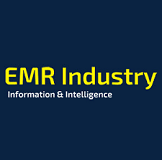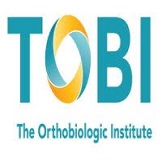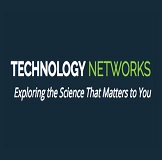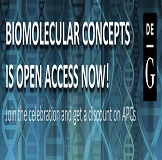
Epigenetics 2018

Theme: Epigenetics and its innovations
Epigenetics Conference 2018 to be held at Tokyo, Japan with the theme “Epigenetics and its Innovations”. This Epigenetics conference brings together a unique and international mix of experts like academicians, scientists, and business professionals, general public, current and prospective young scientists to share information and ideas about the development of epigenetics based research. Attendees will learn about several topics relevant to epigenetics, and find out about the latest epigenetic studies and products in the clinical field by browsing the ongoing exhibition. Anyone with an interest in genetics, epigenetics and epigenomics, including researchers, teachers, students or agency persons with jobs related to genetics can attend the conference. The conference is also suited to persons who sell goods or services to genetic field.
Session 1: Animal Epigenetics
Epigenetic inheritance plays a crucial role in many biological processes, such as gene expression in early embryo development, imprinting and the silencing of transposons. It has recently been established that epigenetic effects can be inherited from one generation to the next. Epigenetic parameters heritable disorders, and are often overlooked on the areas of livestock immunity and stress. The understanding of epigenetics is underpinning the latest cancer research and this can be translated into directed efforts to improve animal health and welfare.
Epigenetics Conference | Genetics Conference | Epigenetic Science Conference | Advance in Epigenetics Conference | Epigenetic Science Meeting | Genetic Science Meeting | Animal Epigenetic Conference | Animal Conference | Animal Welfare Meeting | Livestock Conference
Session 2: Epigenetic modifications and Viral Infections
Viruses infecting animal cells are thought to play central roles in shaping the epigenetic scenario of infected cells. It has become obvious that knowing the impact that viral infections have on the epigenetic control of their host cells will certainly lead to a better understanding of the interplay viruses have with animal cells. DNA viruses use host transcription factors and epigenetic regulators in such a way that they affect epigenetic control of gene expression that extends to host gene expression. At the same time, animal cells employ mechanisms controlling transcription factors and epigenetic processes, in order to eliminate viral infections. On the whole, epigenetic mechanisms are involved in most virus-cell interactions.
Epigenetics Conference | Genetics Conference | Epigenetic Science Conference | Advance in Epigenetics Conference | Epigenetic Science Meeting | Genetic Science Meeting | Conference on DNA Viruses | Conference on Viral Infections | Epigenetic modifications Conference | Human Health Conference |
Session 3: Epigenetics in Neurological disease
The importance of epigenetic regulation in neurological functions and disease, and its potential influence on clinical parameters, is only now being realized. Epigenetic profiling in neurological disease is challenging since disease varies significantly in progression, severity and penetrance, and neurological tissues cannot be easily accessed. It is therefore important to develop a wide range of informative cellular models, animal models and xenograft models of neurological disease for use in epigenetics research and biomarker evaluation.
Epigenetics Conference | Genetics Conference | Epigenetic Science Conference | Advance in Epigenetics Conference | Epigenetic Science Meeting | Genetic Science Meeting | Conference on Neurological Diseases | Neuroscience Epigenetics Conference
Session 4: Cancer Epigenetics
Lifestyle and environmental factors associated with carcinogenesis also strongly affect epigenetic statuses, and thus epigenetic mechanisms may mediate environmental influences on gene expression and even diseases, resulting in a focus of investigation. Still as a possible risk factor and surrogate marker for liability to cancer, the methylation statuses seem to be ideal for the analysis and are emerging as a new scope. Epigenetic changes in comparison with genetic ones are reversible and are acquired in a gradual manner. These epigenetic features offer a huge potential for prevention strategies.
Epigenetics Conference | Genetics Conference | Epigenetic Science Conference | Advance in Epigenetics Conference | Epigenetic Science Meeting | Genetic Science Meeting | Conference on Cancer Studies | Oncology Conference | Meeting on Oncology Research
Session 5: Clinical Epigenetics
Identifying drugs that inhibit epigenetic changes are of great clinical interest. Knowledge of the specific epigenetic changes associated with these types of diseases facilitates the development of specific inhibitors, which can be used as epigenetic drugs. Major classes of epigenetic drugs currently in use, are DNA methylation inhibiting drugs, bromodomain inhibitors, histone acetyl transferase inhibitors, histone deacetylase inhibitors, protein methyltransferase inhibitors, and histone methylation inhibitors. Their role in reversing epigenetic changes and treating disease are of major interest.
Epigenetics Conference | Genetics Conference | Epigenetic Science Conference | Advance in Epigenetics Conference | Epigenetic Science Meeting | Genetic Science Meeting | Clinical Epigenetics Conference | Clinical Epigenetics Meeting
Session 6: Epigenetic Diseases
While epigenetic changes are required for normal development and health, they can also be responsible for some disease states. Disrupting any of the three systems that contribute to epigenetic alterations can cause abnormal activation or silencing of genes. Such disruptions have been associated with cancer, syndromes involving chromosomal instabilities, and mental retardation. Studies based on these areas prove to be a development in the genetic research.
Epigenetics Conference | Genetics Conference | Epigenetic Science Conference | Advance in Epigenetics Conference | Epigenetic Science Meeting | Genetic Science Meeting | Epigenetic Diseases Conference | Genetic Diseases Conference.
Session 7: Epigenetic Gene Silencing
Epigenetics gene silencing refers to non-mutational gene inactivation that can be faithfully propagated from precursor cells to clones of daughter cells. A number of challenging questions may be resolved by additional experiments using existing technologies, but the future also holds promise for completing the descriptive phase of this research.
Epigenetics Conference | Genetics Conference | Epigenetic Science Conference | Advance in Epigenetics Conference | Epigenetic Science Meeting | Genetic Science Meeting | Epigenetic Gene Silencing Conference | Gene Silencing Conference
Session 8: Epigenetic Therapy
One of the major targets of epigenetics therapy is histones, which are subject to numerous posttranslational modifications, including acetylation, methylation, phosphorylation, and sumoylation, among others. It tends offer unique opportunities to develop new therapeutic approaches to treat and potentially cure related diseases.
Epigenetics Conference | Genetics Conference | Epigenetic Science Conference | Advance in Epigenetics Conference | Epigenetic Science Meeting | Genetic Science Meeting | Epigenetic Therapy Conference | Gene Therapy Conference
Session 9: Epigenomics
Epigenomics provides the functional context of genome sequence, analogous to the functional anatomy of the human body. Much of what appear to be inconclusive genetic data for common disease could therefore become meaningful in an epigenomic context. Moreover, the combination of new epigenomic tools with conventional genetics and a new mathematical language for their interface may have as much impact on understanding human disease
Epigenetics Conference | Genetics Conference | Epigenetic Science Conference | Advance in Epigenetics Conference | Epigenetic Science Meeting | Genetic Science Meeting | Epigenomics Conference | Epigenomic Studies Conference
Session 10: Epigenetic Mechanism
Epigenetic mechanisms have emerged as essential components of gene expression regulation during muscle development and in response to cellular stress. In the last decade, an increasing number of studies have been published characterizing changes in the epigenetic features of muscle cells and associating these modifications with differential gene expression.
Epigenetics Conference | Genetics Conference | Epigenetic Science Conference | Advance in Epigenetics Conference | Epigenetic Science Meeting | Genetic Meeting | Epigenetic Mechanism Conference | Epigenetic Pathway Conference
Session 11: Epigenetic Inheritance
Epigenetic phenomena and in particular heritable epigenetic changes or transgenerational effects, are the subject of much discussion in the current literature. These present a model of transgenerational epigenetic inheritance and explore the effect of epigenetic inheritance on the risk and recurrence risk of a complex disease.
Epigenetics Conference | Genetics Conference | Epigenetic Science Conference | Advance in Epigenetics Conference | Epigenetic Science Meeting | Genetic Science Meeting | Epigenetic Inheritance Conference | Epigenetic Inheritance Studies Conference
Session 12: Factors affecting Epigenetics
Individual genetic background and environmental factors are intertwined to lifestyle in determining the health status of individuals. Increasing evidence shows that environmental and lifestyle factors may influence epigenetic mechanisms, such as DNA methylation, histone modifications and microRNA expression. Advanced studies in the future, on these factors might provide a vast range of understanding and knowledge of epigenetics and its outcome.
Epigenetics Conference | Genetics Conference | Epigenetic Science Conference | Advance in Epigenetics Conference | Epigenetic Science Meeting | Genetic Science Meeting | Conference on Factors Affecting Epigenetics
Introduction
Epigenetics has the potential to be a key element in a paradigm change of our understanding of health and disease and fundamentally change public health policies. Epigenetic modifications are normally used during the development and maintenance of different cell types, but faulty epigenetic regulation can cause lasting damage, leading to cancer and other diseases ranging from metabolic disorders such as diabetes, to heart disease and mental health conditions.
The global epigenetics market is projected to reach USD 1,605.7 Million by 2022 from an estimated USD 854.0 Million in 2017, at a CAGR of 13.5% during the forecast period. The decreasing sequencing costs and time, increase in research activities to identify and develop inhibitors/drugs for various diseases, funding for epigenetics research, and rising prevalence of cancer are the major factors driving the growth of this market.
Market Growth
Several marketing research firms have published reports suggesting that market growth (CAGR) in epigenetics could be between 14% and 28%. Our bottom-up, technology-toward-markets analysis suggests that the more modest number may be nearer the truth. We see a compounded annual growth rate of 12% in the number of papers in epigenetics, but with some segments growing much faster.
It is clear that research in epigenetics is a worldwide enterprise with leadership in numbers of papers split between the U.S. and Europe.
The powerful focus on cancer among the papers during 2012–2016 is astonishing in our experience. The single-minded nature of the focus suggests to us that players not already participating in the development might consider acquisition strategies and players already in place will need to continue a strong effort to avoid becoming obsolete. The strong focus on cancer also means that other areas are being “neglected” and represent untapped market potential for growth in epigenetics in the future.
Global Epigenetics Universities
· University of North Dakota, USA
· University of Cambridge, UK
· University of Leicester, UK
· Duke University Medical Centre, USA
· University of Copenhagen, Denmark
· Lund University, Sweden
· Purdue University, USA
· John Hopkins University, USA
· Harvard University, USA
· University of Southern California, USA
· University of Virginia, USA
· University of California, USA
· Ohio State University, USA
· University of Edinburgh, UK
Global Epigenetics Societies
· Cancer Epigenetics Society, Austria
· International Federation of Human Genetics, South Africa
· Australian Epigenetic Alliance, Australia
· Royal Society of Biology, UK
· Advancing Epigenetics Towards Systems Biology, France
· Genetic Society of America, USA
Reference
1. https://www.marketsandmarkets.com/Market-Reports/epigenetics-technologies-market-896.html
2. https://www.marketsandmarkets.com/PressReleases/epigenetics-technologies.asp
3. http://archive.sciencewatch.com/inter/ins/09/09marEpigentop20/
- Animal Epigenetics
- Epigentic modifications and Viral Infections
- Epigenetics in Neurological Disease
- Cancer Epigenetics
- Clinical Epigenetics
- Epigenetic Diseases
- Epigenetic Gene Silencing
- Epigenetic Therapy
- Epigenomics
- Epigenetic Mechanism
- Epigenetic Inheritance
- Factors Affecting Epigenetics
- Journal of Genetics and Gene Therapy
- Journal of Biochemistry & physiology
4 Organizing Committee Members
9 Renowned Speakers
Hua-Ying Fan
University of New
Mexico
USA
Jay Goodbinder
Holistic Doctors Kansas City
USA
Alexander A. Gimelbrant
Harvard Medical School
USA
Cosmin Arsene
University of Bucharest
Romania
Mickra Hamilton
Apeiron Academy
USA
Keith Booher
Zymo Research Corporation
USA
Berna Demircan Tan
Istanbul Medeniyet University
Turkey
Anil Batta
Govt.Medical College
India
Tarfa M Peter
Gombe State University
Nigeria






































































































































